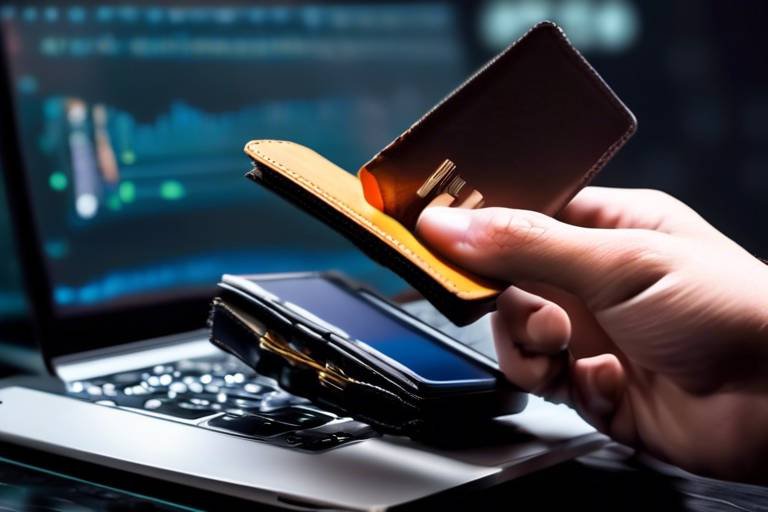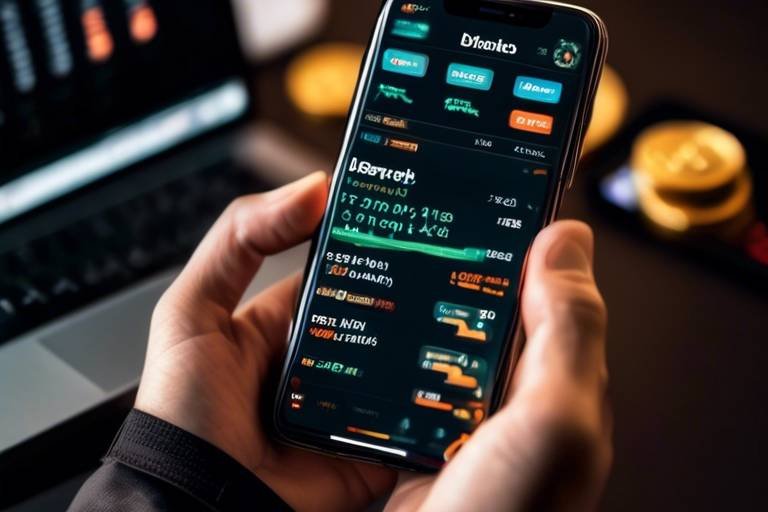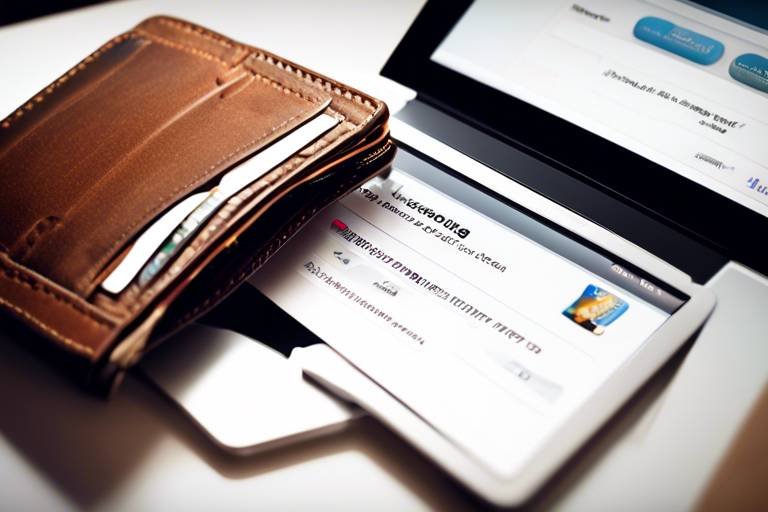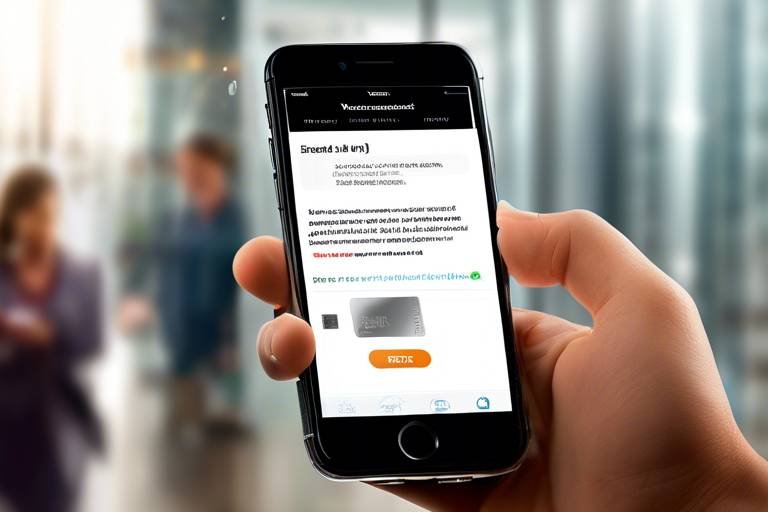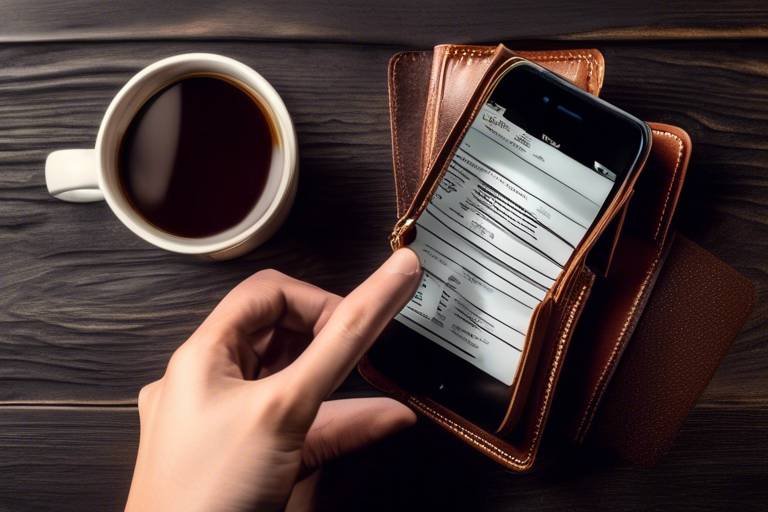How Wallets Facilitate Cross-Border Transactions in Crypto
In the fast-paced world of finance, cryptocurrency wallets have emerged as crucial tools for facilitating cross-border transactions. Imagine a world where sending money across borders is as easy as sending an email—this is the reality that crypto wallets are creating. With the ability to store, send, and receive digital currencies, these wallets are reshaping how we think about money transfer, making it more accessible and less dependent on traditional banking systems.
Cross-border transactions have historically been riddled with challenges, including high fees, long processing times, and regulatory hurdles. However, with the advent of cryptocurrency wallets, users can now bypass many of these issues. By leveraging blockchain technology, wallets enable instant transfers of value without the need for intermediaries. This not only reduces costs but also increases the speed of transactions, allowing users to engage in global commerce like never before.
Moreover, cryptocurrency wallets come equipped with various features designed to enhance user experience and security. For instance, many wallets offer multi-currency support, allowing users to hold different types of cryptocurrencies in one place. This is especially beneficial for frequent travelers or businesses operating in multiple countries, as they can easily switch between currencies without the hassle of exchanging fiat money. Furthermore, the integration of advanced security features, such as two-factor authentication and encryption, ensures that users' funds are protected during cross-border transactions.
Another significant advantage of using crypto wallets for international transactions is their ability to provide transparency. Each transaction is recorded on the blockchain, making it easy for users to track their transfers in real-time. This level of transparency builds trust among users and reduces the risk of fraud, which is a common concern in traditional banking systems.
In conclusion, cryptocurrency wallets are not just storage solutions; they are powerful tools that facilitate seamless cross-border transactions. By overcoming traditional barriers and offering enhanced features, these wallets are paving the way for a more inclusive and efficient global financial system.
- What is a cryptocurrency wallet? A cryptocurrency wallet is a digital tool that allows users to store, send, and receive cryptocurrencies. It can be software-based (hot wallets) or hardware-based (cold wallets).
- How do wallets facilitate cross-border transactions? Wallets enable users to send and receive cryptocurrencies instantly, bypassing traditional banking systems, which often impose high fees and delays.
- Are crypto wallets secure? Yes, many wallets incorporate advanced security features such as encryption and multi-signature options to protect users' funds from unauthorized access.
- Can I use a wallet for multiple cryptocurrencies? Absolutely! Many wallets support multiple cryptocurrencies, allowing users to manage various digital assets in one place.
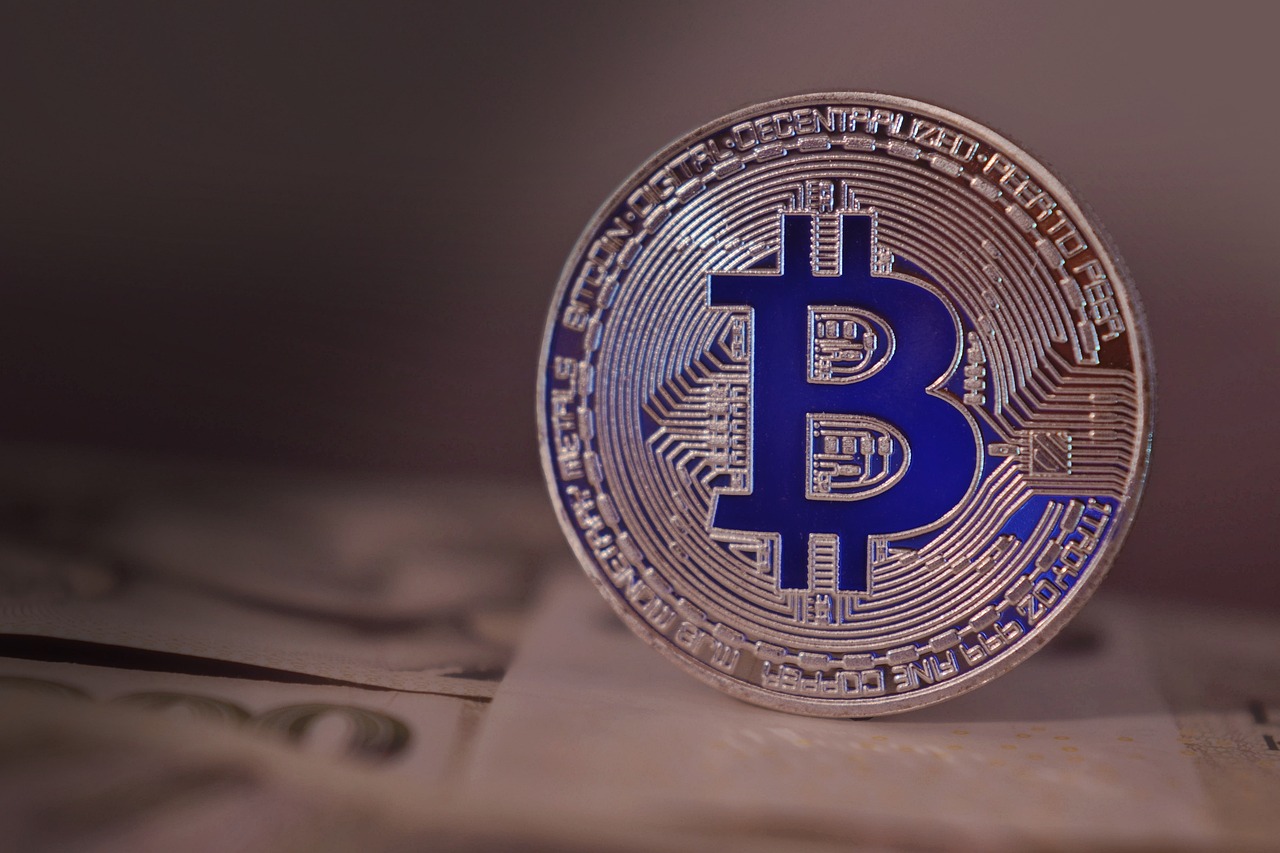
The Evolution of Cryptocurrency Wallets
The journey of cryptocurrency wallets is nothing short of fascinating, evolving from simple digital storage solutions to sophisticated tools that empower users to conduct cross-border transactions seamlessly. Initially, wallets were merely a means to hold cryptocurrencies, akin to a digital piggy bank. However, as the demand for cryptocurrencies surged, so did the complexity and functionality of these wallets. Today, they play a pivotal role in the global financial landscape, enabling users to send and receive digital currencies across borders with ease.
In the early days, wallets were primarily desktop-based applications, requiring users to download software to manage their crypto assets. This setup, while functional, posed challenges in terms of accessibility and convenience. As the cryptocurrency market matured, the need for more user-friendly solutions became apparent. This led to the development of mobile wallets, which revolutionized how users interacted with their cryptocurrencies. With the rise of smartphones, users could now access their funds anytime, anywhere, making cross-border transactions more practical and efficient.
As we moved further into the digital age, the introduction of web-based wallets emerged, providing an even more accessible option for users. These wallets allowed individuals to manage their crypto assets through a browser, eliminating the need for software downloads and making it easier for newcomers to enter the space. However, this convenience came at a cost—security concerns began to surface, as web-based wallets were more vulnerable to hacking attempts.
To address these security issues, developers introduced cold wallets, which store cryptocurrencies offline. This innovation was a game-changer, providing users with a safe haven for their assets, especially for those engaging in significant cross-border transactions. Cold wallets became synonymous with security, allowing users to hold their cryptocurrencies without the constant worry of cyber threats.
As the landscape continued to evolve, the rise of Decentralized Finance (DeFi) introduced a new dimension to cryptocurrency wallets. Users could now engage in lending, borrowing, and trading without relying on traditional financial institutions. This shift not only enhanced the functionality of wallets but also expanded their role in facilitating cross-border transactions, as users could interact with decentralized exchanges (DEXs) directly from their wallets.
Today, the evolution of cryptocurrency wallets is marked by an array of options tailored to various user needs. Whether you are a frequent trader utilizing hot wallets for speed or a long-term investor opting for cold wallets for security, the choices are abundant. As technology advances, we can expect further innovations that will enhance the usability and security of cryptocurrency wallets, making cross-border transactions even more seamless and efficient.
- What is a cryptocurrency wallet? A cryptocurrency wallet is a digital tool that allows users to store, send, and receive cryptocurrencies. It can be a software application or a hardware device.
- What are hot and cold wallets? Hot wallets are connected to the internet, providing easy access for frequent transactions, while cold wallets are offline, offering enhanced security for long-term storage.
- How do wallets facilitate cross-border transactions? Wallets enable users to send and receive cryptocurrencies globally without the need for traditional banking systems, making transactions faster and often cheaper.
- Are cryptocurrency wallets secure? While many wallets have robust security features, users must also take precautions, such as managing their private keys and using two-factor authentication.

Types of Cryptocurrency Wallets
When diving into the world of cryptocurrency, one of the first things you’ll encounter is the concept of cryptocurrency wallets. These digital wallets are essential for storing, sending, and receiving cryptocurrencies. However, not all wallets are created equal. Understanding the different types of cryptocurrency wallets can significantly impact your cross-border transaction experience. Each type offers unique features and security levels, catering to various user needs and transaction scenarios.
Broadly speaking, cryptocurrency wallets can be categorized into two main types: hot wallets and cold wallets. Hot wallets are connected to the internet, making them highly accessible and convenient for daily transactions. They allow users to quickly send and receive funds, which is vital in cross-border dealings where timing can be crucial. On the flip side, cold wallets are offline storage solutions that prioritize security, making them ideal for users who want to safeguard their assets for the long term. This distinction between hot and cold wallets is fundamental, as it reflects the trade-off between convenience and security.
Hot wallets come in various forms, including web wallets, mobile wallets, and desktop wallets. They are designed for users who need quick access to their funds. The convenience of hot wallets makes them popular among traders and individuals who frequently engage in cross-border transactions. However, while they offer ease of use, it's crucial to remember that being online also makes them more vulnerable to hacking and cyber threats. Therefore, users should always practice good security hygiene, such as enabling two-factor authentication and using strong passwords.
Cold wallets, on the other hand, include hardware wallets and paper wallets. These wallets are not connected to the internet, providing a robust layer of security against online threats. For users who prioritize the safety of their assets, especially when dealing with significant amounts of cryptocurrency, cold wallets are the go-to option. Hardware wallets, such as Ledger and Trezor, store private keys on a physical device, while paper wallets involve printing out the keys on paper. Although cold wallets require a bit more effort to access your funds, the peace of mind they provide is often worth it.
| Feature | Hot Wallets | Cold Wallets |
|---|---|---|
| Connectivity | Online | Offline |
| Security Level | Medium | High |
| Access Speed | Fast | Slower |
| Best For | Frequent Transactions | Long-Term Storage |
In addition to hot and cold wallets, there are also mobile wallets, which have gained immense popularity due to the surge in mobile financial solutions. Mobile wallets are a type of hot wallet specifically designed for smartphones, providing users with the flexibility to conduct transactions on the go. They combine the convenience of hot wallets with the added benefit of accessibility, making them ideal for users who travel frequently or engage in cross-border transactions regularly.
Ultimately, the choice between hot wallets, cold wallets, and mobile wallets will depend on individual needs and preferences. Are you someone who trades frequently and values speed? Or do you prefer to keep your assets secure for the long haul? Understanding the nuances of each wallet type can help you make an informed decision that aligns with your cryptocurrency goals.
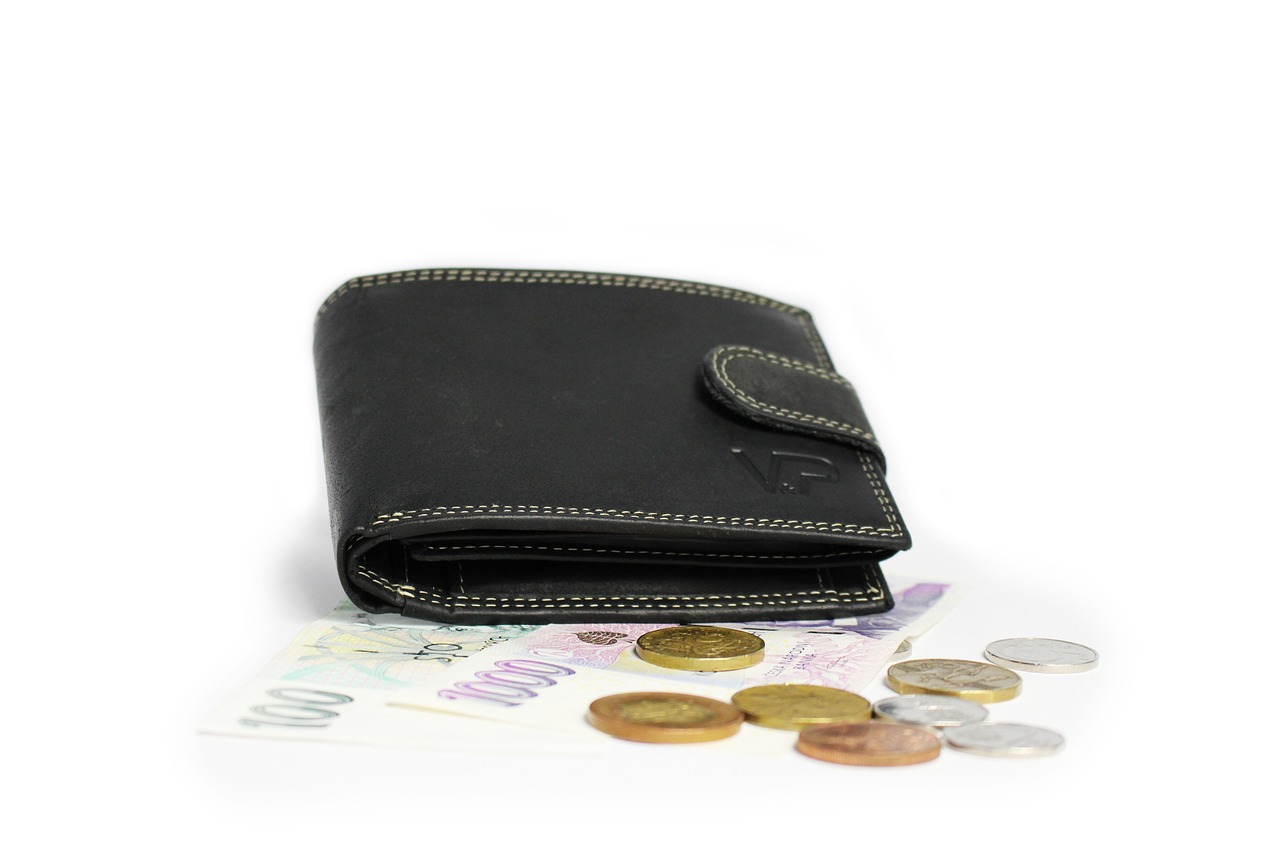
Hot Wallets vs. Cold Wallets
When it comes to managing your cryptocurrency, understanding the difference between hot wallets and cold wallets is crucial, especially in the context of cross-border transactions. Hot wallets are like your everyday wallet—easily accessible and convenient for quick purchases. They are always connected to the internet, which makes transactions fast and efficient. This is particularly beneficial for users who need to execute transactions on the fly, such as trading or sending money across borders in real-time. However, this convenience comes at a cost: hot wallets are more vulnerable to hacking and cyber threats.
On the flip side, cold wallets serve as a fortress for your cryptocurrencies. Imagine storing your valuables in a safe deposit box rather than carrying them around in your pocket. Cold wallets are offline storage solutions, which means they are not connected to the internet and are therefore much less susceptible to cyber attacks. This makes them an ideal choice for long-term storage of assets, especially for users who prioritize security over immediate access. For cross-border transactions, where the stakes can be high, many users opt for cold wallets to protect their investments.
To better illustrate the differences, let's take a look at a comparison table:
| Feature | Hot Wallets | Cold Wallets |
|---|---|---|
| Accessibility | High - Always online | Low - Requires manual connection |
| Security | Moderate - Vulnerable to hacks | High - Offline storage |
| Transaction Speed | Fast - Instant transactions | Slower - Requires setup |
| Best For | Frequent transactions | Long-term storage |
In summary, the choice between hot and cold wallets often comes down to the user's specific needs. If you're someone who regularly engages in cross-border transactions and values speed, a hot wallet might be your go-to solution. However, if you're more concerned about security and plan to hold your assets for a longer period, a cold wallet is likely the better choice. Ultimately, many users find a combination of both wallets to be the most effective strategy, allowing them to enjoy the benefits of quick transactions while keeping a portion of their assets securely stored away.
- What is a hot wallet? A hot wallet is a cryptocurrency wallet that is connected to the internet, allowing for quick and easy transactions.
- What is a cold wallet? A cold wallet is an offline storage solution for cryptocurrencies, providing enhanced security against online threats.
- Which wallet is better for cross-border transactions? Hot wallets are generally better for quick transactions, while cold wallets offer more security for long-term storage.
- Can I use both hot and cold wallets? Yes, many users opt for a combination of both to balance speed and security.

Advantages of Hot Wallets
Hot wallets have become a popular choice among cryptocurrency users, especially for those engaging in cross-border transactions. One of the primary advantages of hot wallets is their unparalleled convenience. Since these wallets are connected to the internet, they allow users to access their funds and make transactions with just a few clicks. Imagine being able to send money to a friend in another country while sipping coffee at your favorite café! This ease of access is crucial in today’s fast-paced world, where time is often of the essence.
Another significant benefit of hot wallets is their speed. Transactions can be completed almost instantaneously, which is a game-changer when you consider the traditional banking systems that can take days to process international transfers. With hot wallets, users can send and receive funds in real-time, making them ideal for businesses and individuals who need to act quickly. This speed is especially beneficial in volatile markets, where prices can fluctuate dramatically in a short period.
Furthermore, hot wallets are typically user-friendly, designed with intuitive interfaces that cater to both beginners and experienced users. This accessibility means that even those new to cryptocurrency can easily navigate the wallet’s features without feeling overwhelmed. Many hot wallets also offer mobile applications, allowing users to manage their assets on the go. Just think about it: you can check your balance, send funds, or even trade cryptocurrencies right from your smartphone!
However, it’s essential to recognize that with great convenience and speed comes certain risks. Hot wallets, being online, are more susceptible to hacking and cyber threats. Therefore, users must take security measures seriously. This includes using strong passwords, enabling two-factor authentication, and regularly updating their wallet software. The key is to balance convenience with security to ensure a safe and efficient transaction experience.
In summary, the advantages of hot wallets—convenience, speed, and user-friendliness—make them an attractive option for users engaged in cross-border transactions. They allow for quick and easy access to funds, facilitating seamless transactions in a globalized economy. Just like having a credit card instead of cash, hot wallets provide the flexibility and speed that modern users demand.
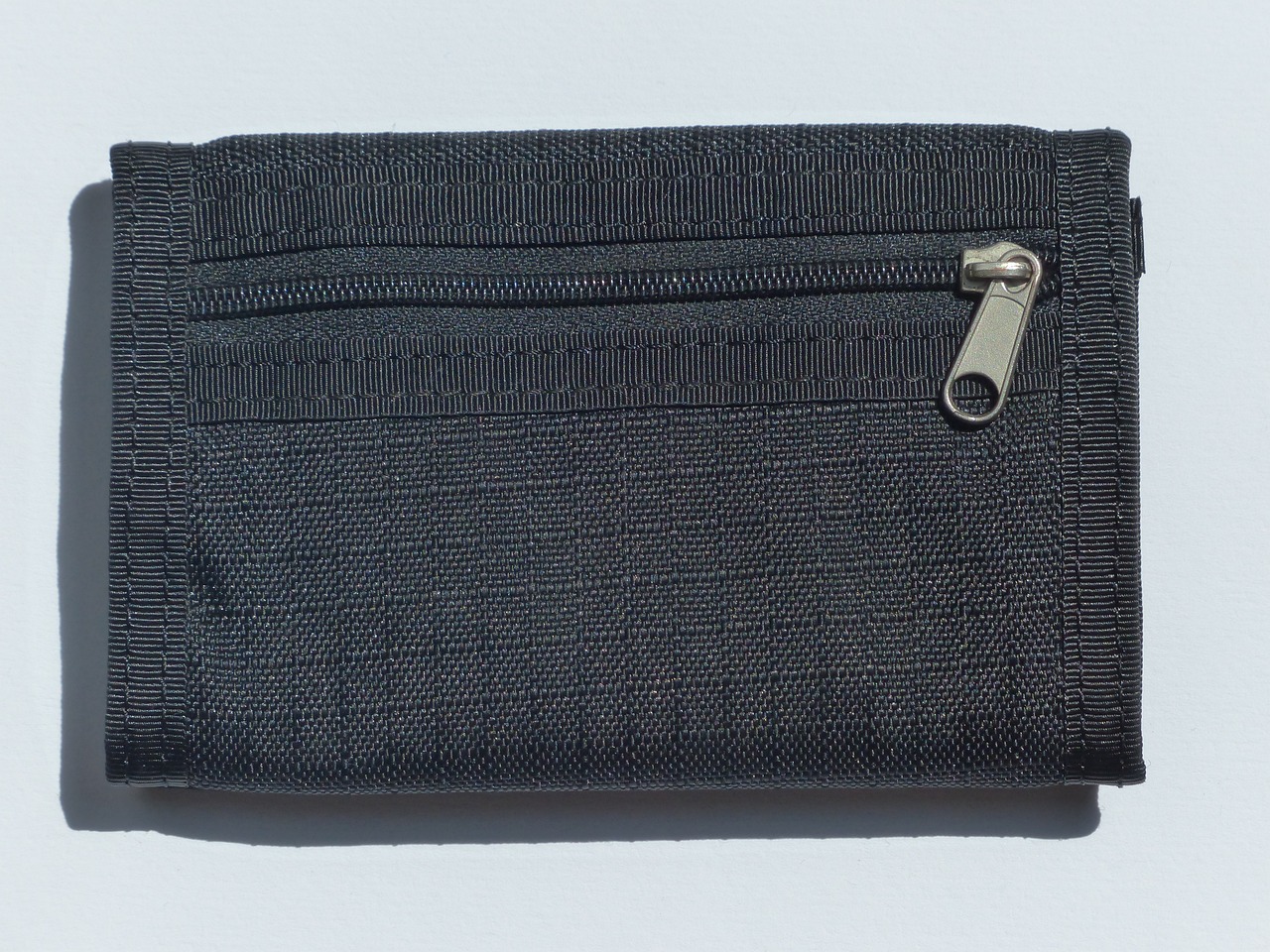
Benefits of Cold Wallets
When it comes to securing your cryptocurrency, cold wallets stand out as a fortress against the myriad of threats lurking in the digital world. Unlike their hot wallet counterparts, which are constantly connected to the internet and thus vulnerable to hacking attempts, cold wallets provide a level of security that is hard to beat. Imagine storing your valuables in a safe at home versus leaving them on a table in a busy café; that’s the difference between using a cold wallet and a hot wallet.
One of the primary benefits of cold wallets is their enhanced security. By keeping your cryptocurrency offline, cold wallets significantly reduce the risk of unauthorized access. This is particularly crucial for long-term investors who may not need immediate access to their assets. With cold wallets, users can store their private keys securely, away from the prying eyes of cybercriminals.
Moreover, cold wallets often come with additional features that bolster their security. For instance, many cold wallets support multi-signature transactions, which require multiple private keys to authorize a transaction. This means that even if one key is compromised, the funds remain safe, as access requires additional keys that are stored separately. This multi-layered approach to security can be likened to having multiple locks on your front door; the more barriers there are, the harder it is for intruders to gain entry.
Another significant advantage is the peace of mind that comes from knowing your assets are secure. In a world where cyber threats are increasingly sophisticated, the assurance that your cryptocurrency is stored offline can alleviate anxiety. Users can focus on their investments and strategies without the constant worry of potential hacks or scams. This psychological benefit cannot be underestimated, especially for those who are new to the cryptocurrency space.
Cold wallets also provide a user-friendly experience for those who prioritize security over convenience. While accessing funds may take a little longer compared to hot wallets, the process of transferring assets from a cold wallet to a hot wallet is straightforward. Users can easily manage their funds by moving only what they need for daily transactions while keeping the bulk of their assets securely stored away. Think of it as having a savings account for your long-term investments and a checking account for day-to-day expenses; it’s a practical approach to managing your finances.
In summary, the benefits of cold wallets are clear: enhanced security, peace of mind, and a practical approach to asset management. As the cryptocurrency landscape continues to evolve, these wallets will remain a cornerstone for users who prioritize the safety of their investments over immediate access. The choice between hot and cold wallets ultimately depends on individual needs, but for those who value security above all else, cold wallets are undoubtedly the way to go.
- What is a cold wallet? A cold wallet is a type of cryptocurrency wallet that stores your digital assets offline, providing enhanced security against hacking.
- How do I transfer funds from a cold wallet to a hot wallet? To transfer funds, connect your cold wallet to a device, initiate the transfer to your hot wallet address, and confirm the transaction.
- Are cold wallets completely secure? While cold wallets offer a higher level of security, no system is entirely foolproof. It's essential to follow best practices for securing your wallet and private keys.
- Can I use a cold wallet for daily transactions? Cold wallets are not ideal for daily transactions due to their offline nature; they are best used for long-term storage of assets.

Mobile Wallets and Their Impact
In today's fast-paced world, mobile wallets have emerged as a game-changer for conducting cross-border transactions. Imagine having the power to send money across the globe, right from your pocket! That's exactly what mobile wallets offer. They provide a seamless, user-friendly interface that allows individuals to manage their cryptocurrencies with just a few taps on their smartphones. This convenience is particularly vital in a global economy where time is money, and delays can lead to missed opportunities.
One of the most significant impacts of mobile wallets is their ability to democratize access to financial services. For many people in developing countries, traditional banking systems are either inaccessible or too costly. Mobile wallets bridge this gap by enabling users to engage in international transactions without the need for a bank account. They can easily send and receive funds, pay for goods and services, and even convert cryptocurrencies to local currencies—all from their mobile devices. This opens up a world of possibilities for individuals and businesses alike.
Moreover, mobile wallets often come equipped with features that enhance the user experience. For instance, they typically include:
- User-friendly interfaces that simplify transactions.
- Instant notifications about transaction status, ensuring users are always informed.
- Integrated security measures, such as biometric authentication, to protect users' assets.
As mobile wallets continue to evolve, they are also integrating with various decentralized finance (DeFi) platforms. This integration allows users to access a broader range of services, such as lending and yield farming, directly from their mobile devices. The convenience of managing these complex financial activities on-the-go is a significant advantage, especially for those engaged in cross-border trading.
However, it’s essential to note that while mobile wallets offer numerous benefits, they are not without their challenges. Security concerns remain a top priority, as mobile devices can be vulnerable to hacking and phishing attacks. Users must be diligent in protecting their private keys and personal information. Additionally, the reliance on internet connectivity can be a double-edged sword; while it facilitates quick transactions, it can also pose risks in areas with unstable internet access.
In conclusion, mobile wallets have revolutionized the way we conduct cross-border transactions. They combine convenience, accessibility, and innovative features, making them an essential tool in the modern financial landscape. As technology continues to advance, we can expect mobile wallets to become even more integral to the way we interact with cryptocurrencies and engage in global commerce.
- What is a mobile wallet? A mobile wallet is a digital wallet that allows users to store, send, and receive cryptocurrencies using their smartphones.
- Are mobile wallets safe? While mobile wallets offer convenience, they can be vulnerable to hacking. It is crucial to use wallets with strong security features and to keep your device secure.
- Can I use a mobile wallet for cross-border transactions? Yes, mobile wallets are specifically designed to facilitate cross-border transactions, allowing users to send and receive funds internationally with ease.

Security Features in Cryptocurrency Wallets
When it comes to cryptocurrency transactions, security is not just a feature—it's a necessity. With the rise of digital currencies, the importance of safeguarding assets has never been more critical. Cryptocurrency wallets come equipped with various security features designed to protect users against the ever-present threats of hacking and fraud. Understanding these features can empower users to make informed decisions about how they store and manage their digital assets.
One of the primary security mechanisms employed in cryptocurrency wallets is encryption. This technique ensures that the data within the wallet is scrambled and can only be accessed by those with the correct decryption keys. Think of it as a high-tech lock on your front door; without the right key, no one can get in. The management of private keys is equally crucial. These keys are essentially the passwords to your cryptocurrency holdings. If someone gains access to your private keys, they can control your assets. Therefore, keeping these keys safe and secure is paramount.
Another innovative feature is the use of multi-signature wallets. These wallets require multiple approvals before a transaction can be executed, adding an extra layer of security. It’s like needing two keys to open a vault—this is particularly beneficial for businesses or individuals engaging in significant cross-border transactions, as it reduces the risk of unauthorized access. Imagine a scenario where a company relies on a single employee to authorize large transactions; if that employee's account is compromised, the entire operation could be at risk. Multi-signature wallets mitigate this by distributing control among several trusted individuals.
Moreover, many wallets now incorporate two-factor authentication (2FA), which requires users to provide two forms of identification before accessing their accounts. This could be something they know, like a password, and something they have, like a smartphone app generating a time-sensitive code. It’s like having a bouncer at the door of your digital currency club; only those with the right credentials can enter.
In addition to these features, the concept of hardware wallets deserves mention. These physical devices store your cryptocurrency offline, making them nearly immune to online threats. While they may not be as convenient for daily transactions, they are ideal for long-term storage of cryptocurrency assets. Think of them as a safe deposit box for your digital wealth—secure and separate from the chaotic online world.
As the cryptocurrency landscape continues to evolve, users must remain vigilant about the security features of their wallets. Each feature plays a vital role in protecting assets during cross-border exchanges, ensuring that users can engage in global transactions with confidence. By understanding and utilizing these security measures, individuals can navigate the exciting yet unpredictable world of cryptocurrency with greater peace of mind.
- What is the most secure type of cryptocurrency wallet?
Hardware wallets are considered the most secure as they store your private keys offline, away from potential online threats. - How can I protect my private keys?
Store them in a secure location, use encryption, and consider employing multi-signature wallets for added security. - What should I do if I lose access to my wallet?
Use any recovery phrases or backup keys you may have saved. If those are lost, recovery may not be possible.

Encryption and Private Keys
In the world of cryptocurrency, encryption and private keys serve as the backbone of security, ensuring that your digital assets remain safe from prying eyes and malicious actors. Imagine your cryptocurrency wallet as a treasure chest, and the private key is the only key that can unlock it. Without this key, no one—including you—can access the contents of that chest. This concept is crucial for anyone engaging in cross-border transactions, where the stakes can be incredibly high.
Encryption works by converting your data into a code that can only be deciphered with the correct key. This means that even if someone intercepts your transaction, they won't be able to make sense of it without your private key. There are various encryption techniques employed in cryptocurrency wallets, including asymmetric encryption, which uses a pair of keys: a public key that anyone can see and a private key that must be kept secret. This dual-key system enhances security, as it allows users to receive funds through their public key while keeping their private key confidential.
When it comes to managing private keys, users have several options:
- Custodial Wallets: These wallets manage your private keys for you, making it easier for beginners but also introducing a level of trust in the service provider.
- Non-Custodial Wallets: Here, you are in complete control of your private keys, but this also means you bear the full responsibility for their security.
For cross-border transactions, the importance of keeping your private keys secure cannot be overstated. A compromised key can lead to unauthorized access, potentially resulting in the loss of your assets. Therefore, many users opt for additional security measures, such as hardware wallets or multi-signature wallets, which require multiple keys to authorize a transaction. This multi-layered approach to security not only protects your assets but also instills confidence when engaging in international transactions.
In conclusion, understanding the role of encryption and private keys in cryptocurrency wallets is essential for anyone looking to navigate the world of cross-border transactions. By prioritizing security and being vigilant about managing your keys, you can significantly reduce the risks associated with digital currency exchanges.
- What is a private key? A private key is a secret number that allows you to access your cryptocurrency. It's crucial to keep it secure, as anyone with access to your private key can control your funds.
- How can I keep my private key safe? Use hardware wallets, enable two-factor authentication, and never share your private key with anyone.
- What happens if I lose my private key? If you lose your private key, you will lose access to your cryptocurrency, as there is no way to recover it without the key.
- Are custodial wallets safer than non-custodial wallets? Custodial wallets are easier to use but require you to trust the service provider with your private keys. Non-custodial wallets give you full control but require you to manage your keys securely.

Multi-Signature Wallets
In the world of cryptocurrency, security is often the name of the game, and offer a robust solution for users looking to enhance the safety of their assets. But what exactly are they? Simply put, a multi-signature wallet requires more than one private key to authorize a transaction. This means that instead of relying on a single key, which can be a weak point, multiple keys from different parties must be used to access and manage the funds.
Imagine you and a few friends decide to pool your resources to invest in cryptocurrency. Instead of letting one person hold all the keys, you opt for a multi-signature wallet where, say, three out of five keys are needed to make any transaction. This setup not only distributes the responsibility but also significantly reduces the risk of theft or mismanagement. If one key is compromised, the funds remain secure because the other keys are still required for any transaction.
Multi-signature wallets are particularly beneficial for businesses and organizations engaging in cross-border transactions. They add a layer of accountability and transparency, as all parties involved can monitor and approve transactions. This is crucial in a decentralized financial landscape where trust is paramount. By utilizing these wallets, businesses can ensure that no single individual has unilateral control over the funds, which can help prevent fraud and unauthorized access.
Moreover, the implementation of multi-signature wallets can be tailored to fit various scenarios. For instance, a company might require that any transaction over a certain amount must be approved by multiple executives. This not only safeguards large sums of money but also encourages collaboration among team members. In the context of cross-border transactions, where regulations and compliance can vary widely, having multiple approvers can help navigate these complex waters more effectively.
To illustrate how multi-signature wallets function, consider the following table:
| Feature | Description |
|---|---|
| Security | Requires multiple keys for transaction approval, reducing risk of theft. |
| Transparency | All parties can view transaction requests, fostering trust. |
| Flexibility | Can be customized to fit the needs of individuals or organizations. |
| Risk Management | Distributes control among multiple parties, minimizing potential loss. |
While the advantages of multi-signature wallets are clear, they are not without challenges. For instance, coordinating approvals among multiple parties can sometimes delay transactions, which might be a concern in fast-paced markets. However, the trade-off for enhanced security is often worth it, especially in the realm of cross-border transactions where significant amounts of money are at stake.
In conclusion, multi-signature wallets are an essential tool for anyone serious about securing their cryptocurrency holdings, particularly when dealing with international transactions. They offer a unique blend of security, transparency, and flexibility that can help users navigate the complexities of the crypto world while mitigating risks. So, whether you’re a business owner or an individual investor, considering a multi-signature wallet could be one of the best decisions you make for your financial future.
- What is a multi-signature wallet?
A multi-signature wallet requires multiple private keys to authorize a transaction, enhancing security. - How does it improve security?
By requiring multiple approvals, it reduces the risk of theft and unauthorized access. - Are there any downsides to using multi-signature wallets?
Yes, coordinating approvals can sometimes delay transactions. - Who should use multi-signature wallets?
They are ideal for businesses and organizations, as well as individuals who prioritize security in their crypto transactions.
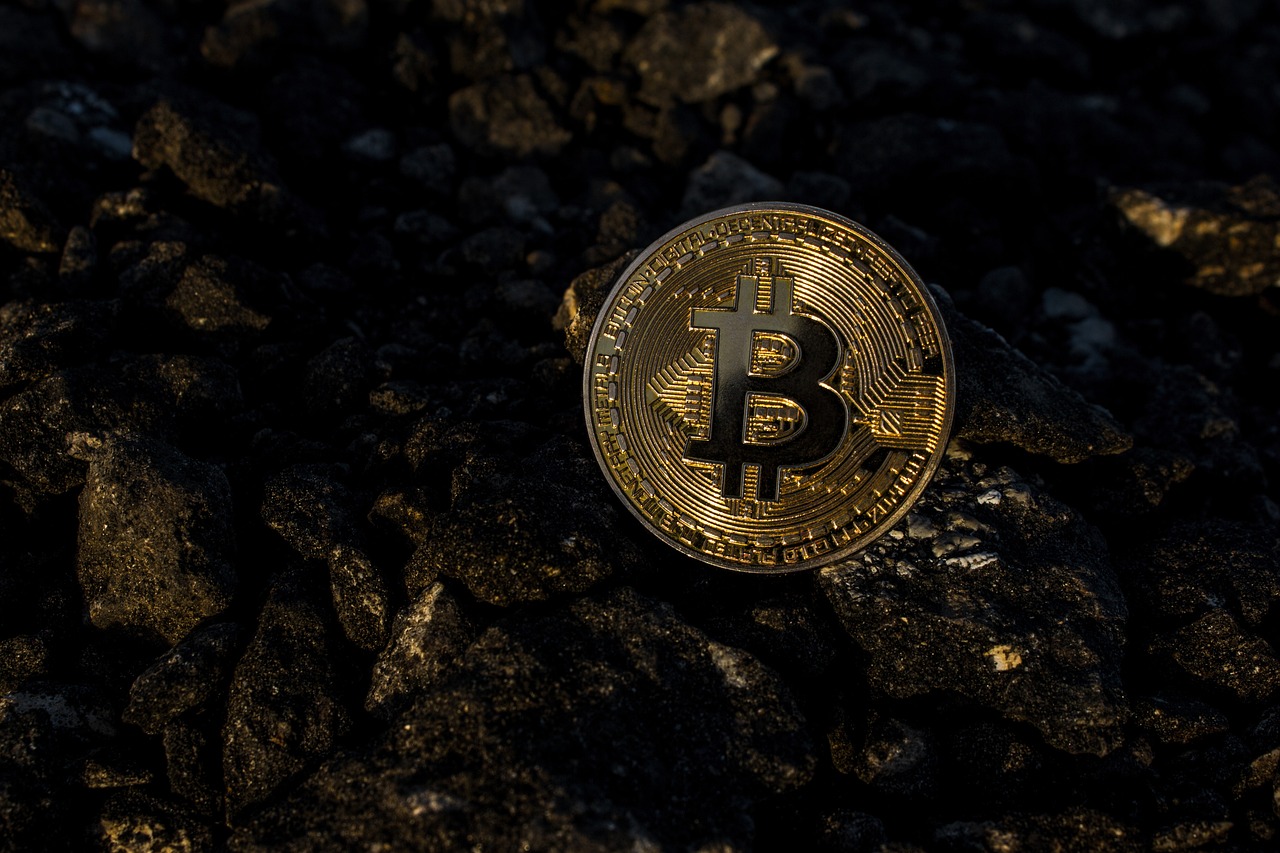
The Role of Wallets in Decentralized Finance (DeFi)
Cryptocurrency wallets have become the backbone of the Decentralized Finance (DeFi)
Imagine a scenario where you want to send money to a friend in another country. Traditionally, you would have to rely on banks or money transfer services that charge exorbitant fees and take days to process transactions. However, with a cryptocurrency wallet, you can send funds almost instantly, often for a fraction of the cost. This convenience is a game-changer, especially for individuals and businesses involved in international trade. Moreover, wallets enable users to lend, borrow, and trade cryptocurrencies seamlessly. They serve as gateways to decentralized applications (dApps) that offer various financial services. For instance, if you want to lend your crypto assets to someone in another country, your wallet allows you to do so without the need for a bank or a third-party service. This direct interaction not only reduces costs but also enhances the speed of transactions, making DeFi an attractive option for those engaged in cross-border finance. Another fascinating aspect of wallets in the DeFi space is their ability to provide access to liquidity pools and yield farming. These concepts allow users to earn passive income on their holdings while participating in cross-border transactions. By contributing to liquidity pools, users can facilitate trades between different cryptocurrencies, which is essential for maintaining market efficiency. In return, they receive rewards, making it a win-win situation. However, it’s important to note that while wallets empower users in the DeFi ecosystem, they also come with their own set of challenges. Security concerns, such as the risk of hacking and the management of private keys, can be daunting for users. Therefore, it’s crucial to choose wallets that prioritize security features, such as multi-signature options and encryption methods. Understanding these aspects can significantly enhance the safety of your assets during cross-border exchanges. In summary, cryptocurrency wallets are not just tools for storing digital assets; they are vital components of the DeFi revolution. By removing the need for traditional financial intermediaries, wallets facilitate faster, cheaper, and more efficient cross-border transactions. As the DeFi ecosystem continues to grow, the role of wallets will only become more significant, shaping the future of global finance. Decentralized exchanges, commonly known as DEXs, have emerged as a game-changer in the world of cryptocurrency trading, particularly when it comes to facilitating cross-border transactions. Unlike traditional exchanges that operate under a centralized authority, DEXs allow users to trade directly with one another, leveraging smart contracts on the blockchain to execute trades securely and transparently. This peer-to-peer model not only enhances privacy but also eliminates the need for intermediaries, making it easier for users to engage in international transactions without the cumbersome processes often associated with centralized platforms. One of the standout features of DEXs is their ability to offer a wide variety of trading pairs, which can be particularly beneficial for users looking to trade less common cryptocurrencies that may not be available on centralized exchanges. This diversity enables traders to access a global market, providing them with opportunities to engage in cross-border transactions that were previously difficult or impossible. Furthermore, the decentralized nature of these exchanges means that they are less susceptible to regulatory restrictions that can hinder traditional exchanges, allowing users in different countries to transact freely. However, while DEXs provide numerous advantages, they are not without their challenges. Users must navigate a learning curve when it comes to using these platforms, as the interface and functionalities can differ significantly from what they might be accustomed to on centralized exchanges. Additionally, the absence of customer support can be daunting for new users, who may find themselves in need of assistance during their trading experience. Nevertheless, the rewards of using DEXs often outweigh these challenges, particularly in the context of cross-border transactions. Moreover, the integration of wallets with DEXs further enhances the user experience by allowing for seamless transactions. Users can connect their cryptocurrency wallets directly to the exchange, enabling them to trade without the need to deposit funds into the platform. This not only increases security but also provides users with greater control over their assets. As the DeFi ecosystem continues to evolve, the synergy between wallets and DEXs is likely to grow, fostering an environment where cross-border transactions become even more efficient and accessible. In summary, decentralized exchanges are redefining the landscape of cryptocurrency trading, particularly for users engaging in cross-border transactions. By eliminating intermediaries, offering diverse trading options, and enhancing user control over assets, DEXs are paving the way for a more inclusive and efficient global financial system. As users become more familiar with these platforms, we can expect to see a rise in the adoption of DEXs, further solidifying their role in the future of cryptocurrency. Liquidity pools and yield farming have emerged as revolutionary concepts in the world of decentralized finance (DeFi), significantly enhancing the cross-border transaction landscape. At their core, liquidity pools are collections of funds locked into a smart contract, allowing users to trade cryptocurrencies without the need for traditional exchanges. This setup not only facilitates seamless transactions across borders but also empowers users to participate in the global financial ecosystem without the constraints of conventional banking systems. Yield farming, on the other hand, is like planting seeds in a garden—users provide liquidity to these pools and, in return, earn rewards, typically in the form of additional cryptocurrency tokens. This process is akin to earning interest on a savings account, but with potentially much higher returns. As users engage in yield farming, they contribute to the liquidity necessary for efficient trading, which is particularly beneficial for cross-border transactions where speed and accessibility are crucial. One of the most attractive aspects of liquidity pools is their ability to democratize access to financial services. Users from different parts of the world can easily participate in these pools, providing liquidity for various trading pairs. This accessibility not only fosters a sense of community among users but also encourages more people to engage in cryptocurrency trading, further driving the demand for cross-border transactions. However, it's essential to understand that while liquidity pools and yield farming present lucrative opportunities, they also come with inherent risks. Market volatility, impermanent loss, and the potential for smart contract vulnerabilities can pose challenges for users. Therefore, it is crucial for individuals to conduct thorough research and understand the mechanics of the platforms they choose to participate in. Here's a quick overview of how liquidity pools and yield farming work: In summary, liquidity pools and yield farming are not just buzzwords; they are integral components of the DeFi movement that significantly enhance the efficiency and accessibility of cross-border transactions. By understanding these concepts, users can better navigate the ever-evolving landscape of cryptocurrency and take advantage of the opportunities it presents. While cryptocurrency wallets offer remarkable benefits for cross-border transactions, users often encounter a range of challenges that can complicate their experience. One of the foremost issues is navigating the regulatory landscape. Each country has its own set of laws regarding cryptocurrency, and these regulations can vary significantly. For instance, some nations may impose stringent rules that require users to verify their identities, while others may have minimal regulations, creating a patchwork of compliance requirements that can be daunting for users engaged in international transactions. Furthermore, the transaction fees associated with cross-border transactions can be a significant barrier. Depending on the wallet provider and the network being used, these fees can vary widely, impacting the overall cost-effectiveness of transactions. Users may find themselves paying exorbitant fees that eat into their profits, especially when conducting frequent transactions. This is particularly challenging in a market where cost efficiency is crucial for maintaining profitability. Another challenge is the technological barriers that some users face. Not everyone is tech-savvy, and the complexity of using cryptocurrency wallets can deter potential users. For instance, the process of setting up a wallet, managing private keys, and understanding how to execute transactions can be overwhelming for newcomers. This lack of understanding can lead to mistakes, such as sending funds to the wrong address or falling victim to phishing scams. Moreover, the security concerns associated with using wallets cannot be overlooked. While many wallets offer robust security features, the threat of hacking remains a constant worry. Users must remain vigilant and proactive in safeguarding their assets, which can be a daunting task. The fear of losing funds due to a security breach can lead to hesitation in utilizing wallets for cross-border transactions. In summary, while cryptocurrency wallets are indispensable tools for facilitating cross-border transactions, users must navigate a complex landscape filled with regulatory hurdles, high transaction fees, technological challenges, and security concerns. Addressing these issues is crucial for enhancing the user experience and promoting the widespread adoption of cryptocurrency wallets in the global financial ecosystem. When diving into the world of cryptocurrency wallets, one cannot ignore the complex landscape of . As cryptocurrencies transcend borders, they often encounter a myriad of regulations that vary dramatically from one country to another. This can feel like navigating a maze with no clear exit, especially for users engaging in cross-border transactions. In essence, regulatory compliance is about ensuring that all transactions adhere to the laws and guidelines set forth by various governments, which can be daunting for both individuals and businesses. One of the primary challenges wallet users face is the inconsistency in regulations across different jurisdictions. For instance, while some countries embrace cryptocurrencies and have established clear frameworks to govern their use, others impose strict restrictions or outright bans. This inconsistency can lead to confusion and potential legal repercussions for users who may inadvertently violate local laws. As a result, it is crucial for users to stay informed about the regulations in their own countries as well as in the countries where they intend to conduct transactions. To further complicate matters, regulatory bodies are continuously evolving their stance on cryptocurrencies. New laws and guidelines can emerge suddenly, often in response to market trends or incidents of fraud. This means that what may be compliant today could change tomorrow, leaving users scrambling to adapt. Therefore, it’s advisable for users to regularly consult legal experts or resources that specialize in cryptocurrency regulations to ensure they remain compliant. Moreover, many wallets incorporate features designed to help users navigate these regulatory challenges. For example, some wallets offer built-in compliance tools that can assist in tracking transactions and generating reports that align with local laws. This can be particularly beneficial for businesses engaging in cross-border transactions, as it simplifies the process of maintaining compliance while allowing them to focus on their core operations. In summary, while cryptocurrency wallets provide incredible opportunities for cross-border transactions, users must remain vigilant regarding regulatory compliance. The landscape is ever-changing, and understanding the rules of engagement is essential to avoid pitfalls. Users should take proactive steps to educate themselves about the regulations in their jurisdictions, utilize compliance features within their wallets, and consider seeking professional advice when necessary. When diving into the world of cryptocurrency wallets for cross-border transactions, one cannot overlook the impact of transaction fees and various limitations that may arise. These fees can vary significantly based on the wallet provider, the type of cryptocurrency being used, and even the network congestion at the time of the transaction. Imagine trying to send money overseas, only to find that the fees are so high they eat into the amount you intended to transfer. It’s a frustrating experience that can deter users from fully embracing the crypto ecosystem. Transaction fees are often categorized into two main types: fixed fees and variable fees. Fixed fees remain constant regardless of the transaction size, while variable fees fluctuate based on the current state of the blockchain network. For instance, during peak times, when many transactions are vying for space in the next block, fees can skyrocket. This can lead to situations where users are left wondering whether their transaction will be processed in a timely manner or if they’ll have to wait longer due to high costs. Moreover, limitations on certain wallets can further complicate cross-border transactions. Some wallets impose restrictions on the maximum amount that can be sent in a single transaction, which can be particularly problematic for businesses or individuals looking to transfer larger sums. In addition, geographical restrictions may prevent users from accessing certain features or services, depending on their location. For example, a wallet that is fully functional in one country may have reduced capabilities or be entirely unavailable in another. To give you a clearer picture, here’s a simple Ultimately, the choice of wallet can greatly influence the overall cost and efficiency of cross-border transactions. Users must weigh the convenience of a hot wallet against the potential high fees and limitations that may come with it. As the crypto landscape continues to evolve, it’s crucial for users to stay informed about these factors to make the best decisions for their financial needs. Cryptocurrency wallets are digital tools that allow users to store, manage, and transact with their cryptocurrencies. They can be software-based (hot wallets) or hardware-based (cold wallets), each offering different levels of security and convenience. Hot wallets are connected to the internet, making them convenient for quick transactions. In contrast, cold wallets are offline and provide enhanced security, making them ideal for long-term storage of assets. Choosing between them depends on your transaction frequency and security needs. When selecting a cryptocurrency wallet, look for features like encryption, private key management, and multi-signature capabilities. These features help protect your assets from unauthorized access and enhance the overall security of your transactions. Absolutely! Mobile wallets have transformed the way users conduct cross-border transactions by providing accessibility and ease of use. They allow you to send and receive cryptocurrencies from anywhere, making global transactions more convenient than ever. Decentralized exchanges (DEXs) are platforms that allow users to trade cryptocurrencies directly without a central authority. Cryptocurrency wallets enable users to interact with DEXs, facilitating efficient cross-border transactions by eliminating the need for traditional intermediaries. Users may encounter several challenges, including regulatory compliance issues, high transaction fees, and technological barriers. It's essential to stay informed about local laws and choose wallets that minimize costs to enhance the efficiency of your cross-border transactions.

Decentralized Exchanges (DEXs)

Liquidity Pools and Yield Farming
Aspect
Liquidity Pools
Yield Farming
Definition
Funds locked in a smart contract for trading
Providing liquidity to earn rewards
Purpose
Facilitate seamless trading
Earn passive income
Risks
Market volatility, impermanent loss
Smart contract vulnerabilities

Challenges Faced by Wallet Users
Users often face regulatory issues, high transaction fees, technological barriers, and security concerns.
Different countries have varying laws regarding cryptocurrency, complicating compliance and transaction processes.
Users should compare wallets and transaction methods to find the most cost-effective solutions.
While many wallets have strong security features, users must remain vigilant to avoid hacking and scams.
Regulatory Compliance
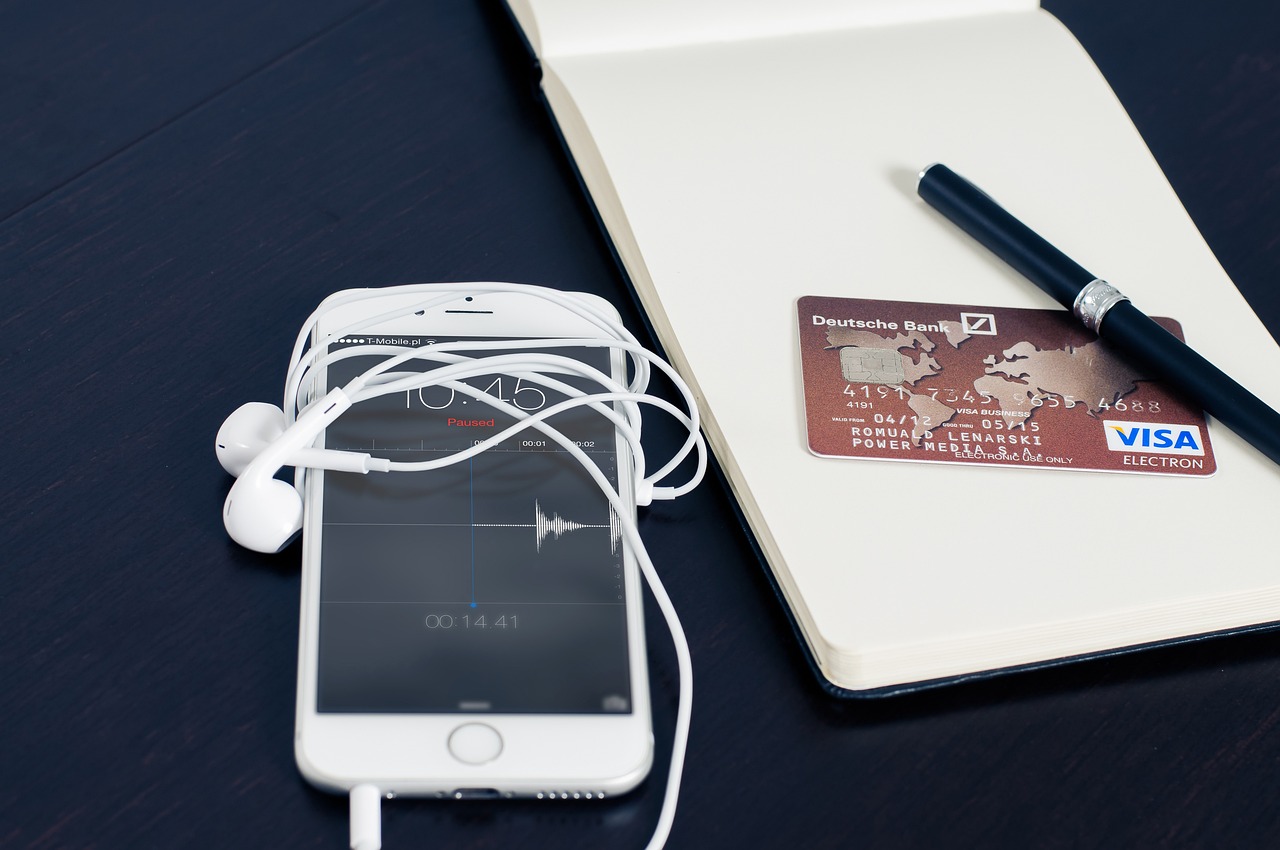
Transaction Fees and Limitations
summarizing common transaction fees across different wallet types:
Wallet Type
Average Transaction Fee
Limitations
Hot Wallet
0.1% - 1% of transaction
May have limits on large transactions
Cold Wallet
Varies (typically lower)
Not ideal for frequent transactions
Mobile Wallet
0.5% - 2% of transaction
May have geographical restrictions
Fees can range from 0.1% to 2% depending on the wallet type and network conditions.
Not all wallets support large transactions; some may impose limits.
Choosing the right wallet and timing your transactions during off-peak hours can help reduce fees.Frequently Asked Questions
May Be Interested






